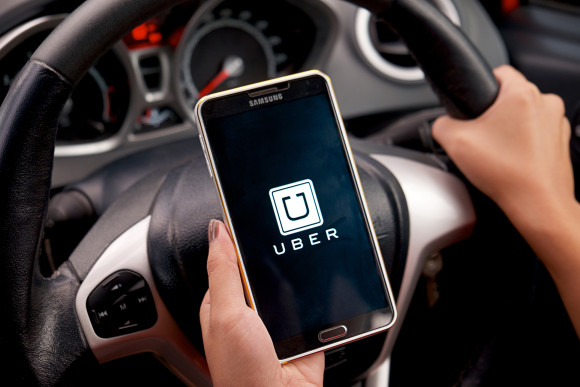Just months after Uber Technologies Inc. persuaded a London judge to allow it to keep operating in the city, the ride-hailing company is back in court.
At stake this time is an issue that could strike at the core of the U.K.’s burgeoning gig economy: whether Uber’s drivers are really self-employed.
Two days of hearings kick off at the Court of Appeal on Tuesday against the backdrop of what one trade union predicted would be the U.K.’s biggest-ever march of “precarious workers” — from Uber drivers and riders for food-delivery apps such as Deliveroo to outsourced cleaners and restaurant workers.
James Farrar and Yaseen Aslam, the Uber drivers spearheading the London case, say they should be classed as the company’s “workers,” meaning they’re entitled to the minimum wage and vacation pay — though they don’t claim to be “employees,” a category that would’ve given them even more rights such as parental leave.
The case could “have a big effect for everybody in the gig economy,” according to James Murray, an employment lawyer at Kingsley Napley in London, who isn’t involved with the case. If Uber has to start treating its drivers as workers, companies with similar models such as Deliveroo may have to do the same, he said.
‘At the Core’
The lawsuit covers an issue that’s “at the core of the service,” Uber’s Chief Executive Officer Dara Khosrowshahi told reporters at a briefing last week. “We think we’re in the right here” but “sometimes we’ll have to go to court to preserve our rights.”
“Almost all taxi and private hire drivers have been self-employed for decades, long before our app existed,” Uber said in a statement. “If drivers were classed as workers they would inevitably lose some of the freedom and flexibility that comes with being their own boss.”
Farrar, who’s now stopped working for Uber, says that’s a “false choice.” Setting up that distinction is “the neatest trick the gig economy has pulled off,” he said. “I don’t accept that trade-off and I don’t think anybody should.”
The case is “incredibly important” because it’s “going to be the case that sets the tone for the gig economy,” said Paul Jennings, an attorney at the London-based law firm Bates Wells Braithwaite, which is representing Farrar and Aslam on a pro-bono basis in their fight against the San Francisco-based firm.
Two Defeats
Uber, which has already lost two U.K. lower court rulings in the case, said that the most recent defeat was due to a fundamental misunderstanding of “how we operate.”
Other lawsuits have found in favor of employment rights for those working in the gig economy. The Uber case could be even more significant than those, because its app-based model is more typical of the gig economy, meaning the case could have wider consequences, according to Murray.
The U.K.’s top judges ruled in June that Pimlico Plumbers Ltd. should have treated its tradesman as a worker giving him the right to vacation pay and to sue the company. In May, the U.K. car service Addison Lee lost an appeal in a case over drivers’ rights and in 2017 a London employment tribunal found a cycle courier working for CitySprint UK Ltd. was a worker.
‘One Way’
“The mood is going one way with the courts, and that’s towards giving workers their rights,” said Murray, from Kingsley Napley.
Farrar and Aslam are what’s known as “test claimants” whose cases have been chosen to represent an estimated 150 other drivers who’ve brought similar lawsuits.
If Uber ends up losing the case, those drivers will automatically also be entitled to back-pay for the minimum wage, Jennings said.
On top of that, the lawyer said, there could be class action-style cases by more drivers which “potentially could be very, very large and very, very valuable.”
Related:
- Uber Granted 15-Month License to Keep Operating in London
- Uber Girds for Court Battle to Continue Operating in London
- London Unveils New Rules for Uber’s Drivers, Cars; Fleet Insurance Also Eyed
- EU Court Rules Uber Should Be Regulated as Transport Firm, Not an App
- Uber CEO Apologizes to Londoners for Taxi App’s Mistakes
- London Decides to Strip Uber of Its License; Uber Will Appeal
Was this article valuable?
Here are more articles you may enjoy.



 Survey Shows Majority of Florida, California Homeowners Seeing Higher Insurance Costs
Survey Shows Majority of Florida, California Homeowners Seeing Higher Insurance Costs  FBI Says Chinese Hackers Preparing to Attack US Infrastructure
FBI Says Chinese Hackers Preparing to Attack US Infrastructure  North Carolina Adjuster and Son Charged With Embezzlement in Roof Jobs
North Carolina Adjuster and Son Charged With Embezzlement in Roof Jobs  California Chiropractor Sentenced to 54 Years for $150M Workers’ Comp Scheme
California Chiropractor Sentenced to 54 Years for $150M Workers’ Comp Scheme 

